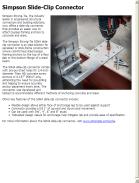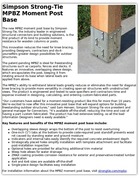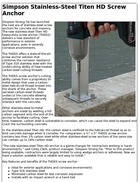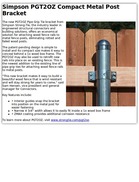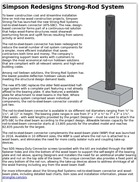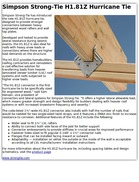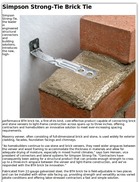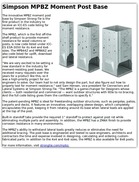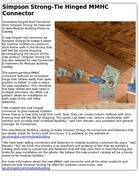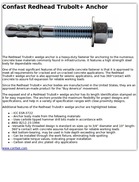Simpson Redesigns Strong-Rod System
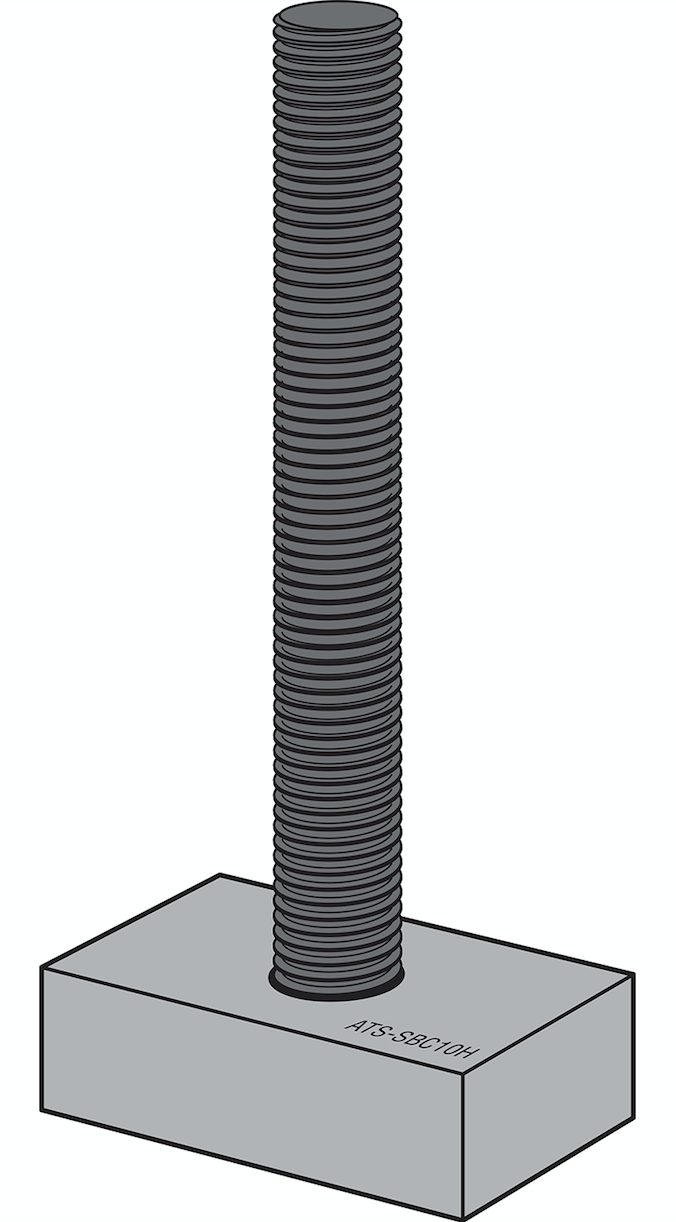 To lower construction cost and streamline installation time on mid-rise wood construction projects, Simpson Strong-Tie has launched the new Strong-Rod Systems rod-to-steel-beam connector (ATS-SBC). The new, design-based connector forms part of a continuous-rod solution that helps wood-frame structures resist shearwall-overturning forces and uplift forces resulting from seismic activity or wind events.
To lower construction cost and streamline installation time on mid-rise wood construction projects, Simpson Strong-Tie has launched the new Strong-Rod Systems rod-to-steel-beam connector (ATS-SBC). The new, design-based connector forms part of a continuous-rod solution that helps wood-frame structures resist shearwall-overturning forces and uplift forces resulting from seismic activity or wind events.
The rod-to-steel-beam connector has been redesigned to reduce the overall number of rod system components for a simpler, more efficient installation that saves contractors both time and money. The company’s engineering support team works with customers to design the most economical rod-run holdown solutions that are compliant with all relevant seismic and high-wind building codes.
Among rod tiedown solutions, the Strong-Rod System has the lowest possible deflection holdown values while meeting the structural design demand loads.
The new ATS-SBC replaces the older field-assembled half-cage system with a complete part featuring a rod already affixed to the bearing plate. It also features a weldable plate for attachment to steel beams in the field. Where the previous system comprised seven individual components, the rod-to-steel-beam connector consists of just two.
The rod-to-steel-beam connector is available in six different rod diameters ranging from ⅝" to 1½", all 12" in height. The bearing plate ranges in size from 3" x 3" x ¾" to 7" x 3" x 1¾". Fillet welds – with weld lengths provided by the project Designer – must be used to attach the ATS-SBC to the steel beam according to the project design. Allowable tension capacity for the rod-to-steel-beam connector starts at 13,805 pounds for the smallest model and reaches 82,835 pounds for the largest.
The rod-to-steel-beam connector complements the wood-beam plate (WBP) that was launched in 2016. Available in 10 different sizes, the WBP is used where the rod run is attached to a wood beam, and eliminates the need for more costly isolator nuts and coupling take-up devices.
Two SDS Heavy-Duty Connector screws (provided with the kit) are installed through the WBP fastener holes and into the bottom of the wood beam to support the self-weight of the bearing plate and rod above, sparing Designers and installers the need for an additional smaller bearing plate and nut on the top side of the beam. This unique connection also provides a fixed point at the very bottom of the rod run, allowing the take-up devices above to address shrinkage of all the wood framing including any from the wood beam itself.
For more information about the Strong-Rod Systems rod-to-steel-beam connector and wood-beam plate, including detailed load charts, item sizes and installation information, please visit strongtie.com/srs.

